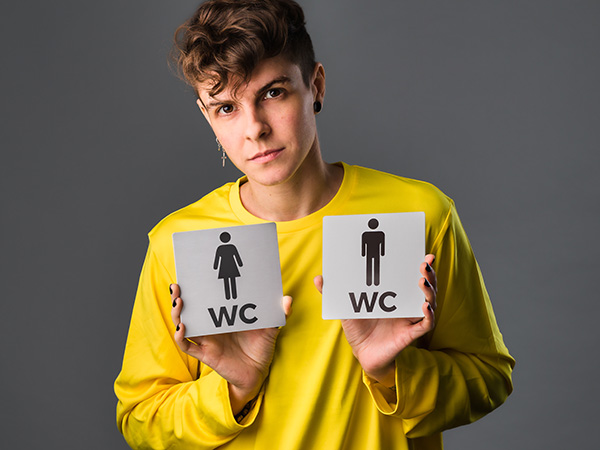
For most people, thinking about your physical or mental well-being when using a public restroom is not something that crosses your mind. But for some, particularly transgender and gender-nonconforming (GNC) people, it is common to consider restrooms a place of constant stress or even potential danger. It might seem hard to believe, but discrimination based on gender presentation is still a problem in public restrooms across the country.
So, why should gender-free restrooms be more of the norm?
When Not Having Restroom Access is More Than an Inconvenience
Even though there are protections in place for people who do not conform to traditional gender norms, many transgender and GNC people still experience harassment, intimidation, refusal of access, and even violence when trying to use public restrooms and other gender-specific facilities.
Disruptions to the Workday of an Employee
- For instance, transgender and GNC individuals may avoid using public restrooms or drinking water throughout the day.
- They might rearrange their entire workday just to avoid using the restroom, which can include having to leave early, arrive late, or take breaks to travel home or to another safe location simply to use the restroom.
Detrimental Effects on an Individual’s Physical and Emotional Well-Being
- It is more than just an inconvenience; it is a serious health issue. Avoiding restrooms and limiting water intake can lead to serious health problems such as dehydration, kidney pain, kidney dysfunction, and urinary tract infections.
- Even if they do use the restroom, transgender and GNC individuals may face harassment, which can affect their feeling of belonging, work performance, and overall happiness, leading to anxiety, depression, and social isolation.
Access to All-Gender Restrooms Is a Form of Workplace Equity
It is unacceptable that something as basic as using the restroom can have such a detrimental impact on someone’s physical and mental health. That is why it is important to have all-gender restrooms available, which can help alleviate some of the stress.
The Department of Labor’s Occupational Safety and Health Administration (OSHA) requires that all employers provide employees with sanitary and available toilet facilities so that employees will not suffer the adverse health effects that can result if toilets are not available when they need them. OSHA’s “Guide to Restroom Access for Transgender Workers” mandates that these issues must be handled with respect and consideration, allowing people access to restroom facilities consistent with their gender identity.
All-Gender Restrooms Benefit All People and Identities
One way to address this is to introduce and make all gender restrooms more of a norm. All-gender restrooms have several benefits associated with them, including but not limited to:
- Providing a more welcoming and comfortable situation for those who require assistance when using the facilities, such as people with disabilities, those with personal attendants, or parents/guardians of children.
- Helping minimize potential mistreatment or feeling uncomfortable when accessing gender-specific restrooms.
- Eliminating unnecessary waiting time for a restroom when another bathroom is open, but you do not use it because it is not associated with your gender.
- Reducing the likelihood of harassment complaints related to the restrooms by creating a more inviting environment.
- Having menstrual products available for any gender who needs them.
Thankfully, NIH leadership is listening. Conversations are already underway, and work has begun on increasing access to all-gender bathrooms across NIH campuses. For example, the National Cancer Institute’s Shady Grove location has facilities that are accessible to all. Stay tuned for more.
We need to ensure that everyone, regardless of their gender identity, has access to safe and welcoming restrooms. We must make these spaces as inclusive as possible for all who must use them. It is not just a matter of basic human decency – it is a matter of health and well-being.
Do you have a story idea for us? Do you want to submit a guest blog? If it's about equity, diversity, or inclusion, please submit to edi.stories@nih.gov.
For news, updates, and videos, subscribe or follow EDI on: Twitter, Instagram, Blog, YouTube.






